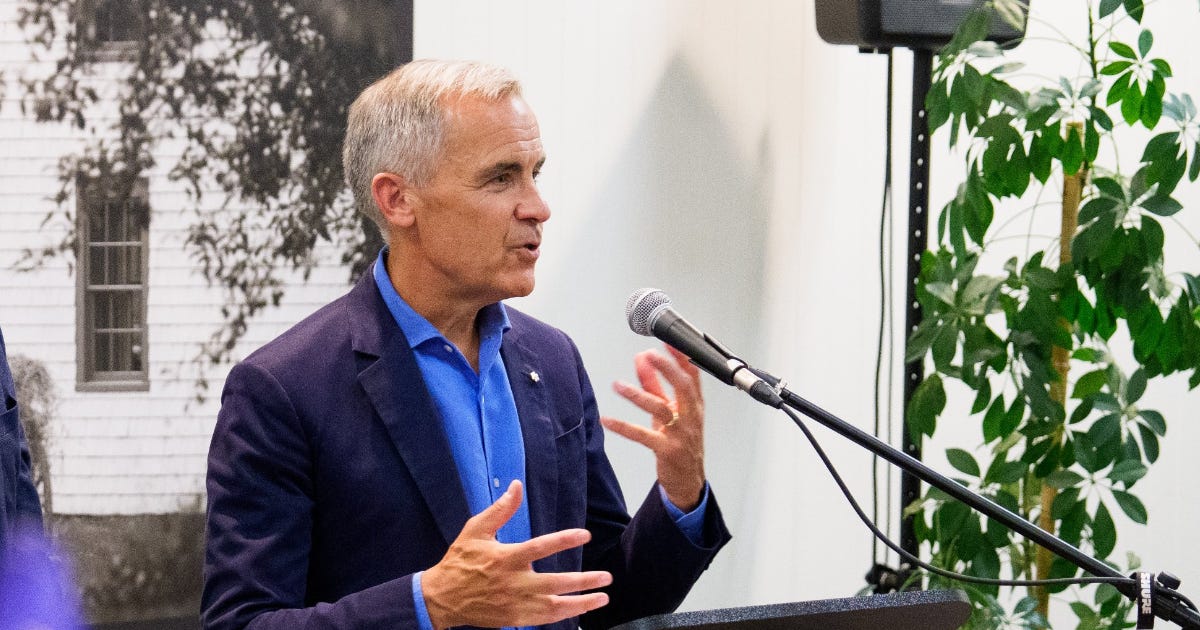PBO warns nobody will be spared in Canada’s looming debt spiral
Canadians are facing the consequences of the Carney government’s borrowing habits, with Interim Budget Officer Jason Jacques warning that the country’s financial future looks bleak.
Canadians are facing the consequences of the Carney government’s borrowing habits, with Interim Budget Officer Jason Jacques warning that the country’s financial future looks bleak and will leave nobody untouched.
According to Jacques, taxpayers will soon face challenges unlike anything he’s seen in decades.
“I can’t think of another time over the past 30 years where a government has said we both need to engage in significant austerity, I think the Prime Minister used the word austerity, and at the same time significant investment,” testified Jacques during the Senate national finance committee on Wednesday.
Prime Minister Mark Carney campaigned on reining in federal spending while also pledging to subsidize industries affected by U.S. tariffs.
“I think that challenge of doing both at the same time definitely stands out,” noted Jacques.
According to the PBO’s latest report, interest charges on the debt alone will cost taxpayers over $55 billion this year. That’s more than the federal government transfers to provinces annually for healthcare.
By 2030, debt interest charges are projected to cost Canadians $82.4 billion.
“The federal debt-to-GDP ratio is projected to increase from 41.7 per cent in 2024-25, rising above 43 per cent over the medium term,” reads the report.
During Wednesday’s national finance committee, Senator Julie Miville-Dechene asked Jacques: “At what point will Canada’s deficit be too heavy, unmanageable?”
“What is the point beyond which our deficit will be so high, so large, the economy will be affected?” asked Senator Miville-Dechene. “There’s not a magic figure for that, a specific number,” responded Jacques.
“We are not sure what will happen. The forecast, we can say, yes, in five years, there will be a risk to the sustainability of the economy and the fiscal management by the Government of Canada.”
Later, Senator Leo Housakos asked if Parliament would have to increase the debt ceiling again, which would mark the third time in four years.
“Your report indicates the new ceiling will not be high enough to accommodate all the borrowing the government plans,” said Housakos, who is also Opposition Leader in the Senate.
Since 2021, the Cabinet has raised the debt ceiling by $1 trillion under the Borrowing Authority Act, from $1.16 trillion to $2.13 trillion. Prime Minister Mark Carney has not yet set a deficit target for next year.
Carney promised to “set a responsible target for deficit reduction” during his Throne Speech in May, but has yet to do so.
“Does this mean the government will have to return to Parliament earlier than anticipated to ask for authority to borrow even more money?” asked Housakos.
PBO advisor Kristina Grinshpoon said this couldn’t be addressed yet because “we’re waiting for Budget 2025,” but that it was possible.
“Short answer, to a certain degree – yes,” said Grinshpoon.
The PBO projects a nominal GDP of $12.9 billion lower annually, on average, from 2025 to 2029. This is “primarily due to the lasting impact of tariffs and less favourable trading conditions with the United States.”
The report also projects $115.1 billion in net new spending from 2024-25 to 2029-30.
The deficit is projected to increase from $51.7 billion (1.7 per cent of GDP) in 2024-25 to $68.5 billion (2.2 per cent of GDP) in 2025-26.



Just wait until Carney's WEF/GLOBALIST/BANKER "Proud European" Environmentalist budget in November. The one that will bring a new meaning to having two ledgers for Accounting purposes.
That current sound of the toilet flushing down what used to be Canada is going to be totally overshadowed by the sound of the Flood of Disaster about to rage over a once proud, respected and prosperous county.
For that... Thank a Liberal.
Canada as a country is over. Too bad.